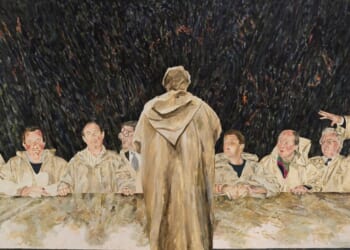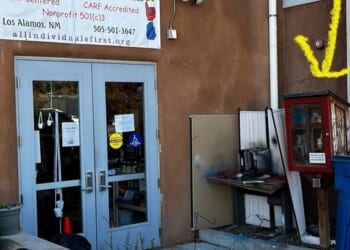BISHOP John Went’s wide-ranging reflections on a lifetime of ministry are an apologia, according to one of his endorsers, for “humane Evangelicalism”. His central message is that the best Evangelicals in Britain are Anglican Evangelicals and that his co-religionists in the Church of England must start behaving like “good Anglicans” instead of thinly disguised Nonconformists.
The book’s title is misleading. Went does not analyse the “changing face” of the movement, but focuses instead on the transformations of his own theological outlook. His trajectory over six decades has gone full circle. Raised in liberal Catholicism, he experienced personal conversion at the age of 18, and was drilled in conservative Evangelical priorities in the 1960s by the Cambridge Inter-Collegiate Christian Union and Oak Hill theological college.
But, after his initial curacy, Went began to broaden. He found the parameters of his faith “wonderfully expanded and enriched” by a “growing openness” to other Anglican traditions. Now in retirement, though still identifying as Evangelical, he finds himself back in a liberal Catholic congregation, because the local Anglican Evangelicals do not celebrate the eucharist weekly and sing too many Charismatic choruses. He longs for Evangelicals to experience his own pilgrimage of discovery and become “distinctively Anglican”.
The book mingles autobiography with theological polemic, though Went’s rebukes are reserved entirely for Evangelicals. He laments their fissiparous tendencies, their bounded orthodoxies, and their habit of unchurching fellow Anglicans. Although an ecumenist at heart, Went has no truck with the gathered ecclesiology of the Free Churches.
Anachronistically, he decries “Reform”, presumably meaning the defunct Anglican Evangelical campaigning group (subsumed in 2018 by the Church Society), not the political party. He keeps his cards close to his chest about the Living in Love and Faith debates, but stands against Evangelicals who are seeking alternative episcopal oversight.
Sometimes Went is surprisingly candid in his criticisms of named personalities. After retiring in 2013, he served as house-for-duty priest in the village of Latimer, in Oxford diocese. His near neighbour was Latimer Minster, a fresh expression of church on a 70-acre farm, but Went objects that its congregation was drawn from a wide geography on an “associational” model, not from the parish. He gives voice to clergy grumbles that Latimer Minster should have been planted in a tougher area where the churches are struggling.
Went also worries that fresh expressions are squeezing out parish churches in Leicester diocese, and concludes that the present Bishop of Leicester — who happened to be Went’s successor as Bishop of Tewkesbury — did not stay in Gloucester diocese long enough to understand the unique opportunities of rural ministry.
There is much in this episcopal commentary that will please Save the Parish champions. One of Went’s heroes is Theodore of Tarsus, the Archbishop of Canterbury who introduced the parish system to England in the seventh century, and Went believes passionately that the parish is part of Anglicanism’s “genius”. He insists that modern Christian mission depends upon maintaining a parish church at the heart of every community, no matter how small the population or how tiny the congregation.
The Revd Dr Andrew Atherstone is Latimer Research Fellow of Wycliffe Hall, Oxford, and Professor of Modern Anglicanism in the University of Oxford.
True Evangelical: The changing face of Anglican Evangelicalism
John Went
Christian Alternative £16.99
(978-1-80341-695-3)
Church Times Bookshop £15.29

















